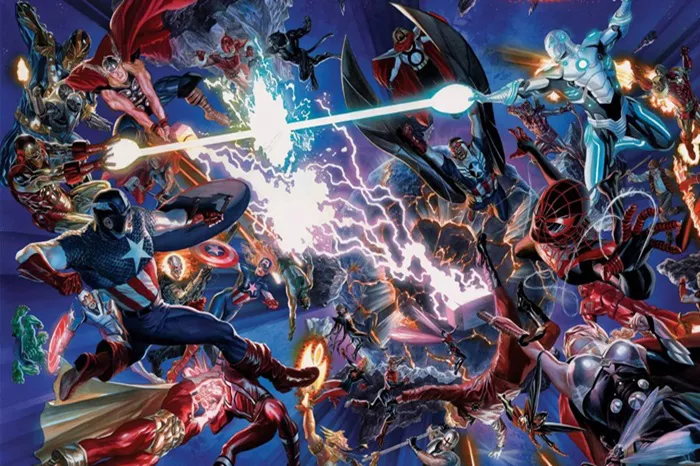Marvel Studios’ approach to crafting the Marvel Cinematic Universe (MCU) has always been meticulous, each phase meticulously planned under the guidance of producer Kevin Feige. From its inception, the MCU has evolved through distinct narrative arcs, from the introduction of iconic heroes to the epic Infinity Saga, where the Avengers confronted the formidable threat of Thanos. Despite occasional missteps, every storyline and character beat felt purposeful, culminating in a grand tapestry that captivated global audiences.
As the Infinity Saga concluded, a new era dawned with the advent of the Multiverse. Now known as the Multiverse Saga, Marvel’s challenge lies in weaving together disparate threads into a cohesive narrative that rivals its predecessor. Each new film or series expands the universe further, adding unique elements that enrich the franchise.
The introduction of Deadpool & Wolverine marks the MCU’s latest venture into the Multiverse, promising to expand horizons while integrating nuanced Multiverse concepts. However, all eyes are on Avengers: Secret Wars, poised to tie up loose ends and deliver a definitive focus to the sprawling Multiverse narrative. Despite its complexity, Marvel Studios aims to harness the Multiverse’s potential, leveraging its strengths to resolve ongoing challenges.
The MCU’s exploration of the Multiverse began tentatively, with early mentions in films like Doctor Strange hinting at its existence. However, it was Avengers: Endgame that solidified the concept, introducing branching timelines and alternate realities. Subsequent MCU projects, including Loki and Spider-Man: No Way Home, further explored Multiverse dynamics, introducing characters and narratives from across dimensions. Marvel’s What If…? animated series showcased the vast scope of the Multiverse, illustrating its potential to reshape familiar stories in unexpected ways.
Yet, the Multiverse narrative hasn’t been without its pitfalls. Audience fatigue and confusion have emerged as significant concerns, exacerbated by the sheer breadth of interpretations across different MCU projects. While Marvel attempts to streamline and clarify these complexities, inconsistencies in Multiverse portrayals occasionally perplex viewers unfamiliar with the intricacies of parallel universes.
Deadpool & Wolverine represents a critical juncture for the Multiverse Saga, testing its narrative coherence and audience engagement. By consolidating past narratives and introducing new elements, the film aims to invigorate the Multiverse storyline while mitigating fatigue associated with its extensive use in recent MCU entries.
Looking ahead, Avengers: Secret Wars looms as the ultimate culmination of the Multiverse Saga, promising to unify disparate threads into a cohesive narrative tapestry. This upcoming installment aims not only to celebrate the MCU’s expansive history but also to establish a clear narrative direction for future phases. As Marvel Studios navigates the challenges of Multiverse storytelling, its ability to deliver a satisfying conclusion in Avengers: Secret Wars will undoubtedly shape the MCU’s trajectory for years to come.
Related topics:
Deadpool Calls Out an MCU Character as Marvel’s Most Despicable Villain
Marvel Cancels ‘Invincible Iron Man’ Series, Shocking Fans
The Fantastic Four: Marvel Comics’ Premier Superhero Team

